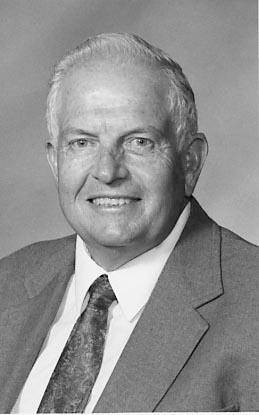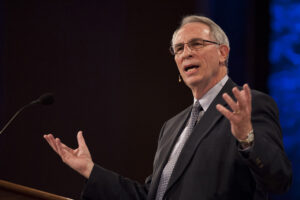
ROCKVILLE, Va. (BP)–When we left Ridgecrest Baptist Conference Center in December 1968, after 16 weeks of orientation, we could not have conceived of all the experiences we would have over three decades of pursuing our missionary calling.
Now five families who started our missionary careers together were reunited at the Southern Baptist International Mission Board’s Missionary Learning Center for our retirement recognition service.
Jackie and Arlene Cooper had planned to serve in Argentina after a year’s language study in Costa Rica, but when visa problems arose they asked to stay in Costa Rica. They later transferred to Panama, where Jackie became director of the Panamanian Baptist Theological Seminary. As he visited pastors over the country, the Lord spoke to him about the Darien, the wild region of Panama between the Panama Canal and the Colombian border.
They worked the last seven years of their career in the region, planting and nurturing churches among the Chocoes Indians and the people moving into the area. They carried on in spite of guerilla threats of murder or kidnapping.
Ross and Laveta Thompson went to Colombia’s “Wild East,” the plains region between the Andes Mountains and the Venezuelan border 600 miles to the east. Land was being opened up for settlement for those who could survive but there was also a budding guerilla movement.
In 1990, after Colombia began to slide into anarchy fueled by drug money, the Thompsons transferred to Lago Agrio, Ecuador, 12 miles south of the Colombian border, where they worked up and down the Napo River, evangelizing the Quichua Indians and developing leadership for both Quichua and Spanish-speaking congregations.
Violence spreading down from the border would eventually make working in close proximity to the border dangerous as well.
Pete and Pat Dunn went to Beirut, Lebanon, where they would work in media for the Arab world. The Dunns arrived in Lebanon to find only two 15-minute Christian programs weekly being broadcast to the Arab world. Pete went to work producing and getting air time for more Baptist programs.
Eventually, when war broke out in Lebanon, they would move to Cyprus and launch an itinerant ministry across North Africa and the Middle East. Pete joined other Christian groups to form a network of radio and later television broadcasting across the region.
Jack and Avah Shelby went to Hong Kong to study both the Malay and Cantonese Chinese languages for two years before going on to Malaysia.
After 10 years, the Shelbys began focusing on India because the Malay government did not permit missionaries to remain in the country longer than that. Later they coordinated the work of volunteers in countries that limit access to missionaries. When the Iron Curtain fell, they were asked to work in Germany and then in Russia. All told, Jack became conversant in seven languages and coordinated partnerships between various Baptist conventions in the United States and most of the nations of Eastern Europe and Central Asia.
A sixth couple, Don and Shirley Kirkland, were unable to attend the retirement recognition services because they had a car accident on the way to Richmond. The Kirklands had been in Ethiopia at the time of the Marxist takeover of that country. Don, a pilot, managed to fly out in a mission-owned plane before the country fell into the hands of the communists.
Compared to the others, our missionary career was less adventuresome, although in our early days there were urban guerilla groups active in Montevideo, Uruguay’s capital city. One of the first stories I wrote for Baptist Press was about the kidnapping of Stephen Spann, the son of fellow missionaries Jimmie and Norma Spann, while urban guerillas used the car he had been driving for a bank robbery.
Like the Dunns, Betty and I worked with media. During the last 14 of our 26 years in Uruguay, however, we served as church planters. Then we had the privilege of serving as overseas correspondents for the Americas, reporting how God is at work from Tijuana to Tierra del Fuego.
As we gathered at the Missionary Learning Center and renewed longtime friendships, we thanked God for his faithfulness. Through all manner of circumstances, we found him faithful to sustain us.
–30–
















